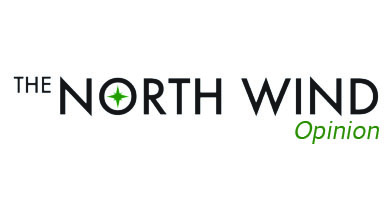If you ask Siri, “What’s the meaning of life?” the encyclopedic assistant that lives behind the home button in the pocket of your pants will reply from its programmed database of answers with a quip like, “I Kant answer that” or with an introspective response such as, “I find it odd that you would ask this of an inanimate object.”
Regardless of how ridiculous these answers may be, Siri has a point: our dependency on artificial intelligence contradicts the human condition, or does it?
Having resisted the Apple from the technological tree of life, my digital personal assistant is known and addressed simply as “Google.” Others may be familiar with Samsung’s Bixby, or an identity from a third-party application. Either way, those with a smartphone employ a butler-bot who serves by the sound of the phone possessor’s voice.
Beyond the screen, intelligent personal assistants are in the home, too, through devices such as Microsoft’s Cortana, Google’s Home and Amazon’s Echo, which answers inquires and requests through Alexa.
The thread that runs through these artificial intelligence systems isn’t just their engendered names and identities, but their willingness to extend accessibility to infinite knowledge via the internet. When we—humans—want answers, they—virtual assistants—provide them, giving new meaning to AI: artificial intelligence has become automatic intelligence.
Of course, this is an essential function of technology, and its evolution to be able to feature an immediate transfer of information is admirable. But, does our dependency on automatic intelligence define what it means to be human?
At the nucleus of this question is a paradox: AI assistants are the product of human knowledge, yet they operate to develop human understanding. It seems like Siri is right. Our knowledge isn’t supreme, nor is it complete, and although human-generated intelligence can work to fill this vacancy, it may also be responsible for the gap.
The ubiquity of automation in our daily lives is as simple as motion-activated faucets and as complex as the check-out lane at a supermarket. Both models of automation have their respective benefits, and are justified because of them—the faucet aids in preventing the spread of human-health threatening germs, whereas the cyborg
cashier facilitates convenience for the shopper.
Despite the advantages of the automatons in streamlining our existence, they also make it obsolete. The computerized checkout, for instance, displaces human employees from a
vocation.
Moreover, it reinforces the paradox: errors in programing and breakdowns of the technology are the product of human imperfection, and require human proficiency to restore.
Ostensibly, then, artificial intelligence has an inherent dependency on humans, at least, the virtual assistants will make you think that with empathetic responses.
Yet, we are the creators of the programmed feedback and make our conversation with intelligent personal assistants one-sided. Rather, our interaction with the AI assistants is a soliloquy in which we both affirm our own knowledge, and outline its limitations.
There is a certain justification in crafting our intelligence-aiding intelligence in this way: we maintain our position as the creator, and the investigator.
However, we also compose algorithms that vicariously gain awareness through our consciousness. These identities are designed to evolve their capacity over time so that if you continually search for cat breeds, then Google will suggest sources of cat-knowledge through your pattern of predictability.
Ultimately, artificial intelligence is both an extension of and substitution for human existence. As we continue to live for knowledge, we do so through a lens of self-maintained intelligence and ignorance.
Artificial and automatic intelligence have value, especially in their ability to fill the hollowness of the unknown, but, the search for knowledge itself is motivated by the unknown.
So, the next time you can’t remember a word, or have existential paralysis, don’t ask Alexa nor Siri for help. Instead, ruminate in the unknown. You may not ever discover the answer, but, at least you will be depending on you, and only you, in the search.

























